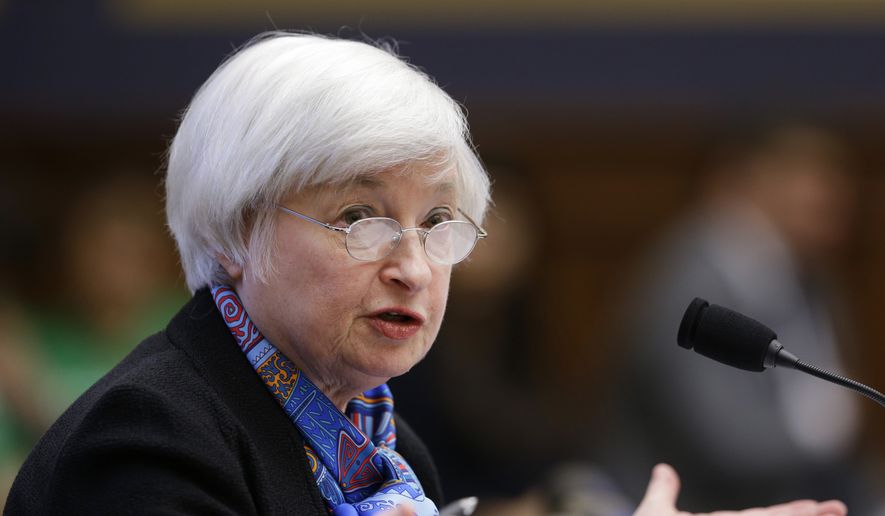OPINION:
At its July meeting, the Federal Reserve Board kept interest rates unchanged. It was not an unexpected move because, as I pointed out in a column on these pages in March 2015, the Fed probably won’t do anything substantive until after the presidential election.
You see, inching up interest rates just a tad increases the government’s borrowing costs, and that would raise the record national debt even more. No matter that this eight-year era of virtual-nothing interest rates has had a devastating effect on senior citizens — call it the Fed’s elder abuse. You would think that at age 70, the Fed Chairman Janet Yellen would have a little sympatico with the elderly. But she earns $199,700 a year in her post and doesn’t have to worry about money.
What the Fed has turned a blind eye to is the investment balance that has been a historic part of America. From earliest times, individuals put money in savings accounts in banks or, in rural areas, in post offices where they could plan for their future. To be sure, there were other options that would become available, including real estate and stock exchanges. But America was built by these small savers who over-saved and under-consumed so that they and their children could improve their lives. Probably the worst ad on TV these days is one by Prudential Financial in which the firm supposedly had some Washington marathon in which young people committed themselves to saving 1 percent more for retirement. If these young folks add 1 percent to the nothing they’re currently socking away, they’re headed to financial doom. It’s oversaving that made America, and that counts.
The Fed’s elderly abuse is illustrated in the fact that banks can’t give seniors, who rely on safe investments, anything more than a fraction of a fraction of a 1 percent return. And for the companies these individuals worked for, well, some 93 percent of their pension plans were underfunded at the end of 2015 as a result of low interest rates. Why should these Americans be forced to put their dough in the stock market, which is volatile, often overpriced and complicated? Sure, sure, in the long run, the business TV channels tell you, the market wins. But it was economist John Maynard Keynes who once said: “In the long run, we are all dead.”
Because insurance companies depend on reasonable interest rates to earn the money to pay their policyholders, they’re sucking air as a result of near-zero interest rates. Especially hard-hit are companies insuring costs for long-term care (premium rates have mushroomed, as a result) — a necessity for many seniors because of the absence of Medicare’s coverage in this area. And because the Consumer Price Index is low, seniors aren’t likely to get any increase in their Medicare monthly stipend next year.
What’s most galling is that the Fed could aid in a way that illustrated concern, namely, by raising rates from its current 0.25-0.50 rate to 0.50-0.75 rate. Such a move wouldn’t kill the stock market or throw prospective homebuyers into oblivion. But it would add something to savings accounts. And even Wall Streeters believe that a return to rate hikes makes sense, in large part, because it would give rise to traditional share price ranges instead of the market’s tendency in recent years to illustrate a bubble-then-burst machine.
And here’s the real rub: The Fed is already violating the mandate listed on its website: “To promote sustainable growth, high levels of employment, stability of prices to help preserve the purchasing power of the dollar and moderate long-term interest rates.” By any historic yardstick, rates aren’t moderate.
Finally, it should be noted, most states have laws against elder abuse that delineate “physical abuse,” “neglect,” “abandonment,” “isolation,” “deprivation” and “financial abuse,” that is, the exploiting of an elderly person’s assets.
Shame, shame on the Fed.
• Thomas V. DiBacco is professor emeritus at American University.




Please read our comment policy before commenting.